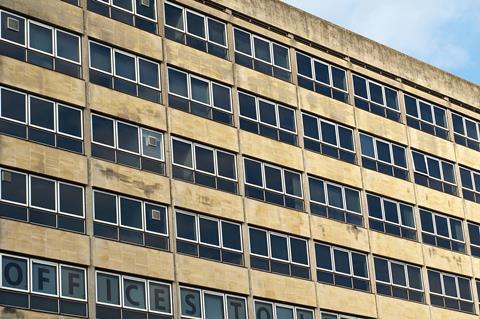I am a bit of an ESG Luddite. I care deeply about the future of our world but tend to glaze over when scientists produce analysis of how and when we must achieve green targets, only to be contradicted by others who tell us something very different.

As with everything in life, balance is important, but in competing to outperform one another and impress electorates with their environmental credentials, governments appear to be showing an alarming lack of thought for the unintended financial consequences of their ambitions.
Our industry – which is responsible for administering what is by a huge factor the largest asset class on the planet – could be one of several at the front line of bearing the cost for the proposed changes in ever-shortening time frames.
The property industry was probably the least financially supported by our government through the pandemic. That it is being set up by government, wittingly or not, to alone pay for transforming the commercial built environment is hardly a surprise.
It is troubling that by selecting seemingly arbitrary target dates, driven by outcome and not reality, in addition to the actual cash cost of compliance, the value destruction could be huge as the market starts differentiating between compliant property and the rest — which, of course, represents the vast majority of commercial real estate today.

The value of investment properties that are either non-compliant, or sufficiently uneconomic to render compliant, could be rapidly destroyed as there will be no market to sell them to, nor lenders prepared to lend against them. The majority of leased property may simply not be capable of radical improvement by the first ambitious target of 2030 because the tenant is unlikely to pay for the improvements, unless government turns the obligation into an occupational tenant liability.
That seems unlikely. What happens if the property owner cannot afford to do the work, or such work is uneconomic to carry out, or it is too disruptive to carry out with a tenant in occupation?
Perhaps ‘green’ loans might help but they have to be economic and what if they are not? What could this do to lenders’ balance sheets?
Many retail property owners sat on their backsides for years watching ecommerce and logistics steal the rug from under their feet, resulting in one of the greatest and fastest episodes of value destruction ever seen. This may unwittingly be happening again as these immense and as yet incalculable costs will ultimately have to be borne by property owners – most of whom are indirectly pensioners and savers.
Onerous consequences
With ever-shortening leases and owners having to become managers — a theme I’ve been going on about for well over a decade — so too will the financial obligations of achieving carbon neutrality fall upon owners. In the case of longer leases, tenants will need adequate resources, responsibility and willingness to absorb the liability, but in most cases, the lease requirement of green compliance will be silent unless the obligation is enshrined in statute.
If compliance is not economically justifiable, a building may lurch into a terminal valuation decline, with negative value a reality when compliance costs exceed use value.
Is the problem really this binary?
I think it probably is.

We can bury our heads in the sand and assume that government won’t do anything so stupid to undermine such a vital industry. But this government, evidenced by recent deeds, clearly sees limited societal or political value in our industry, so anything is possible. Politically would it care much about this value destruction to bolster its environmental credentials? No. In fact, I doubt property has even featured in the PM’s thinking as he is probably preoccupied with the more overt polluters.
Our industry’s woeful recent lobbying performance does not fill me with confidence that anyone with any clout or voice will pick up this baton and run with it, but if we don’t, we could sleepwalk into a bifurcated and dysfunctional market, with huge scale value destruction; not because of a cause we all passionately believe in and consider absolutely worthy and correct, but because of unachievable, arbitrary dates picked to satisfy a highly political agenda.
We need to save our planet but I fear we are being set up to fail.
Nick Leslau is chairman of Prestbury Investments






























1 Readers' comment